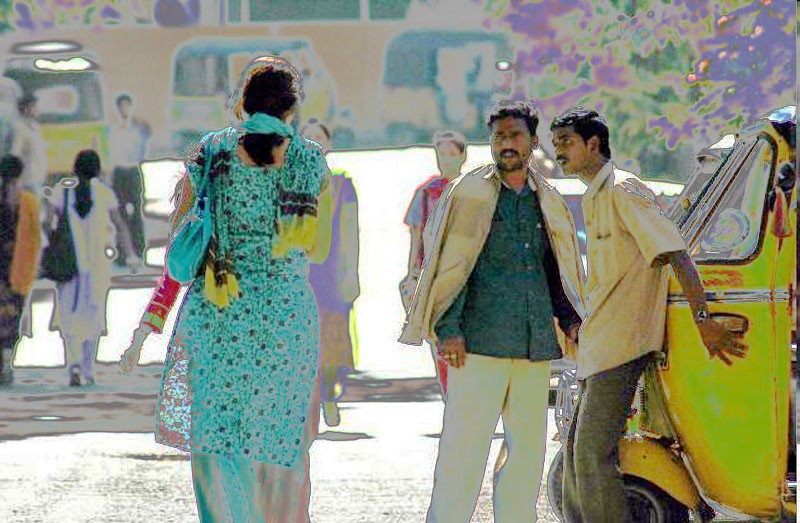
Despite the massive scale of the problem, only rarely is it addressed in terms of psychological impact and social mobility

It was a Sunday evening, and my to-do list had brought me wandering the streets of Urdu Bazar, located in the heart of Old Lahore.
Like any other 19-year-old, university freshman, I hurried along the alley ways to get the handful of items I needed so that I could spend the rest of my holiday sipping down some Choco Loco with my friends.
As I headed deep into the maze of streets and alleys, I approached a crowd of (seemingly) enlightened young men. In the process of finding my way through the blockade I saw the joyous lot entertaining themselves by passing snide remarks at these two women walking by in the distance.
That incident embedded a certain degree of hate and dislike within me towards our society. Until now I was amongst those who had been exposed to a ‘liberal’ environment at home and university (which I started this fall), and I recognised the issue of social freedom and security but had come to accept it as flawed and something we as members of a community might have to bear with. It was an environment where we -- a small group, compared to the sea of men out in the streets -- would discuss matters with utmost interest, in enlightened conversations and pompous terms.
When driving back home from the Urdu Bazar, I felt that the argument related to the way women are treated as members of society should be given a much greater degree of import as compared to its status right now. Street harassment, whether it is in the form of ogling, catcalling or passing obscene remarks or in certain cases groping, is an offence that has sadly become so common in our society that it is taken almost very lightly and as a constant that will happen whenever women are seen in public domain.
According to a study conducted by Cornell University in collaboration with an anti-street harassment organisation called Hollaback, more than three quarters of the surveyed US women (77 per cent) under 40 reported being followed in the previous year. Globally, the number is around 71 per cent, while a further 50 per cent also reported being groped, fondled, or assaulted by the men passing by.
Persistent and often aggressive street harassment substantively impacts the lives of women, with them often resorting to changing their commutes, altering their plans, and calibrating their speech and behavioural patterns to not warrant any attention.
Despite the massive scale of the problem, only rarely is it addressed in terms of psychological impact and social mobility.